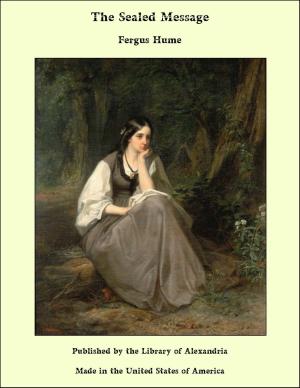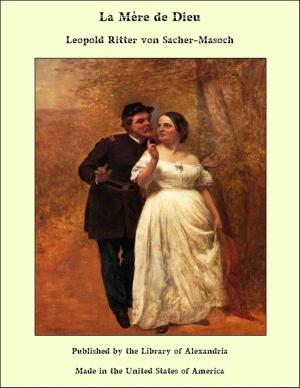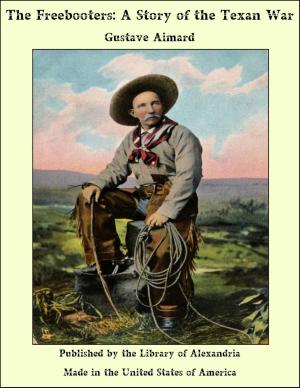| Author: | Sir Arthur Thomas Quiller-Couch | ISBN: | 9781465594020 |
| Publisher: | Library of Alexandria | Publication: | March 8, 2015 |
| Imprint: | Language: | English |
| Author: | Sir Arthur Thomas Quiller-Couch |
| ISBN: | 9781465594020 |
| Publisher: | Library of Alexandria |
| Publication: | March 8, 2015 |
| Imprint: | |
| Language: | English |
The scene is known to-day for one of the fairest in the world. Populous cities lie near it and pour their holiday-makers upon it through the summer season. Trains whistle along the shore under its forests; pleasure-steamers, with music on their decks, shoot across bays churned of old by the paddles of war-canoes; from wildernesses where Indians lurked in ambush smile neat hotels, white-walled, with green shutters and deep verandas; and lovers, wandering among the hemlocks, happen on a clearing with a few turfed mounds, and seat themselves on these last ruins of an ancient fort, nor care to remember even its name. Behind them—behind the Adirondacks and the Green Mountains—and pushed but a little way back in these hundred and fifty years, lies the primeval forest, trodden no longer now by the wasting redman, but untamed yet, almost unhandselled. And still, as the holidaymakers leave it, winter closes down on the lake-side and wraps it in silence, broken by the loon's cry or the crash of a snow-laden tree deep in the forest—the same sounds, the same aching silence, endured by French and English garrisons watching each other and the winter through in Fort Carillon or Fort William Henry. "The world's great age begins anew."… It begins anew, and hourly, wherever hearts are high and youth sets out with bright eyes to meet his fate. It began anew for Ensign John à Cleeve on this morning of July 5, 1758; it was sounded up by bugles, shattering the forest silence; it breathed in the wind of the boat's speed shaking the silken flag above him. His was one of twelve hundred boats spreading like brilliant water-fowl across the lake which stretched for thirty miles ahead, gay with British uniforms, scarlet and gold, with Highland tartans, with the blue jackets of the Provincials; flash of oars, innumerable glints of steel, of epaulettes, of belt, cross-belt and badge; gilt knops and tassels and sheen of flags. Yonder went Blakeney's 27th Regiment, and yonder the Highlanders of the Black Watch; Abercromby's 44th, Howe's 55th with their idolised young commander, the 60th or Royal Americans in two battalions; Gage's Light Infantry, Bradstreet's axemen and bateau-men, Starke's rangers; a few friendly Indians—but the great Johnson was hurrying up with more, maybe with five hundred; in all fifteen thousand men and over. Never had America seen such an armament; and it went to take a fort from three thousand Frenchmen. No need to cover so triumphant an advance in silence! Why should not the regimental bands strike up? For what else had we dragged them up the Hudson from Albany and across the fourteen-mile portage to the lake? Weary work with a big drum in so much brushwood! And play they did, as the flotilla pushed forth and spread and left the stockades far behind; stockades planted on the scene of last year's massacre. Though for weeks before our arrival Bradstreet and his men had been clearing and building, sights remained to nerve our arms and set our blood boiling to the cry "Remember Fort William Henry!" Its shores fade, and somewhere at the foot of the lake three thousand Frenchmen are waiting for us (if indeed they dare to wait). Let the bands play "Britons strike home!"
The scene is known to-day for one of the fairest in the world. Populous cities lie near it and pour their holiday-makers upon it through the summer season. Trains whistle along the shore under its forests; pleasure-steamers, with music on their decks, shoot across bays churned of old by the paddles of war-canoes; from wildernesses where Indians lurked in ambush smile neat hotels, white-walled, with green shutters and deep verandas; and lovers, wandering among the hemlocks, happen on a clearing with a few turfed mounds, and seat themselves on these last ruins of an ancient fort, nor care to remember even its name. Behind them—behind the Adirondacks and the Green Mountains—and pushed but a little way back in these hundred and fifty years, lies the primeval forest, trodden no longer now by the wasting redman, but untamed yet, almost unhandselled. And still, as the holidaymakers leave it, winter closes down on the lake-side and wraps it in silence, broken by the loon's cry or the crash of a snow-laden tree deep in the forest—the same sounds, the same aching silence, endured by French and English garrisons watching each other and the winter through in Fort Carillon or Fort William Henry. "The world's great age begins anew."… It begins anew, and hourly, wherever hearts are high and youth sets out with bright eyes to meet his fate. It began anew for Ensign John à Cleeve on this morning of July 5, 1758; it was sounded up by bugles, shattering the forest silence; it breathed in the wind of the boat's speed shaking the silken flag above him. His was one of twelve hundred boats spreading like brilliant water-fowl across the lake which stretched for thirty miles ahead, gay with British uniforms, scarlet and gold, with Highland tartans, with the blue jackets of the Provincials; flash of oars, innumerable glints of steel, of epaulettes, of belt, cross-belt and badge; gilt knops and tassels and sheen of flags. Yonder went Blakeney's 27th Regiment, and yonder the Highlanders of the Black Watch; Abercromby's 44th, Howe's 55th with their idolised young commander, the 60th or Royal Americans in two battalions; Gage's Light Infantry, Bradstreet's axemen and bateau-men, Starke's rangers; a few friendly Indians—but the great Johnson was hurrying up with more, maybe with five hundred; in all fifteen thousand men and over. Never had America seen such an armament; and it went to take a fort from three thousand Frenchmen. No need to cover so triumphant an advance in silence! Why should not the regimental bands strike up? For what else had we dragged them up the Hudson from Albany and across the fourteen-mile portage to the lake? Weary work with a big drum in so much brushwood! And play they did, as the flotilla pushed forth and spread and left the stockades far behind; stockades planted on the scene of last year's massacre. Though for weeks before our arrival Bradstreet and his men had been clearing and building, sights remained to nerve our arms and set our blood boiling to the cry "Remember Fort William Henry!" Its shores fade, and somewhere at the foot of the lake three thousand Frenchmen are waiting for us (if indeed they dare to wait). Let the bands play "Britons strike home!"















